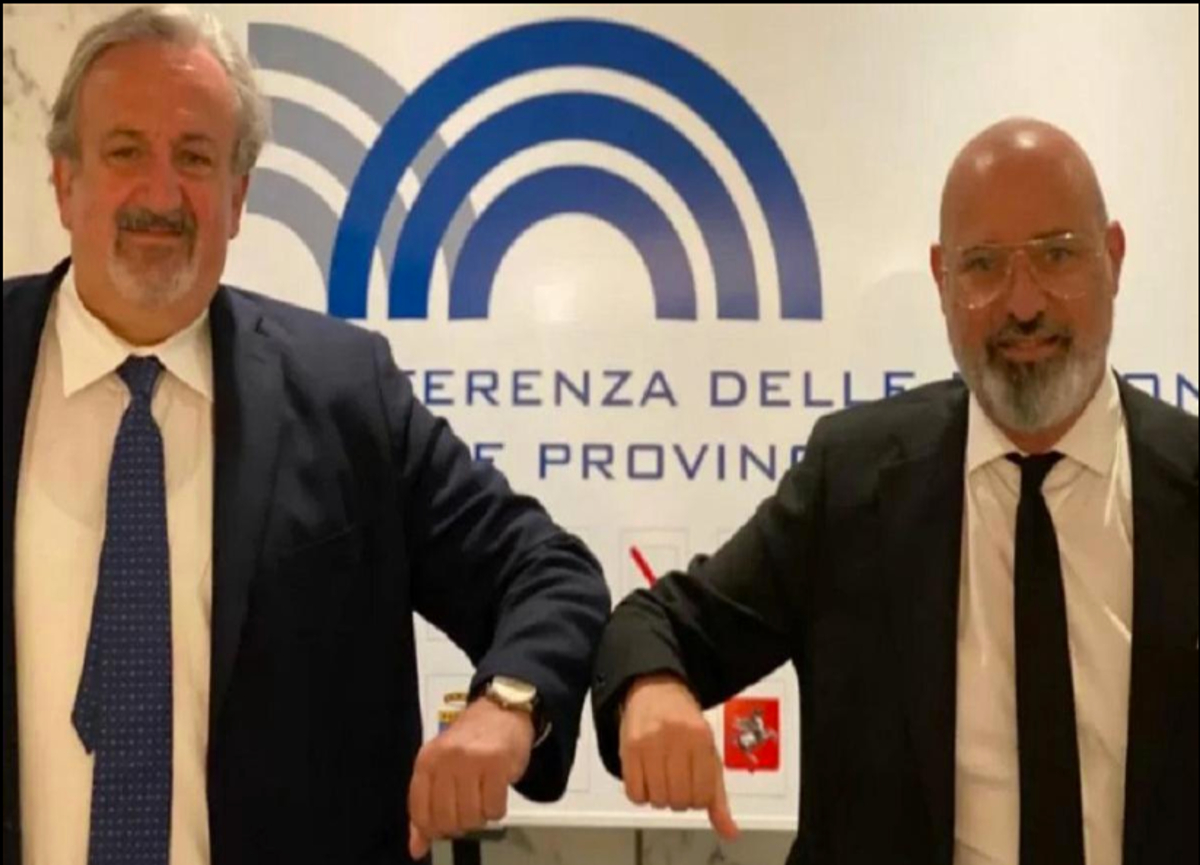The Meloni government has challenged the Puglia law which extends the duration of the legislature in the event of the president’s resignation. Now he is trying to figure out how to do the same with Bonaccini’s Emilia which has approved a similar law
How the government challenged the law of the Puglia Region, which extends the duration of the Regional Council from 6 to 10 months (it must last a maximum of 5 years), now he could challenge the homologous law of Emilia Romagna by Stefano Bonaccini.
The writer was the first in Italy to show the similarities between the two provisions.
A week ago, the Council of Ministers of Giorgia Meloni’s government decided to contest article 96 of the Apulian law, approved last December 29th. The law provides in the event of early resignation of the President of the Region, Michele Emiliano of the Pd, that the Regional Council remain in office for another 6 months, to reach 9-10 months calculating the necessary times to call new elections. Also renamed the “anti Decaro” law, because it would hinder the possible candidacy for the Region of the mayor of Bari, Antonio Decaro, the provision would take effect in the event of Emiliano’s candidacy for the European championships. Event hypothesized informally by the national secretariat of the Democratic Party. In June 2024 we vote for Brussels.
Less than a year ago the Emilia Romagna Region, led by President Stefano Bonaccini of the Democratic Party, carried out a similar operation. With the law of 27 May 2022, it changed the voting process in the event of the early resignation of the president.
The last regional elections in Emilia were held in January 2020, the natural deadline would be January 2025. But the new law introduces a single voting window where you can vote every year, between 15 April and 15 June.
In June 2024, as we said, we vote for the Europeans and for some time in the national secretary of the Democratic Party there have been rumors of a possible release of Bonaccini from the role of “governor” of Emilia, running for Brussels. Bonaccini was supposed to take on a more political role, in line with the candidacy for the secretariat of the Democratic Party, which was then lost… but now the law has remained.
With the new rule, if Bonaccini is elected to the European elections and resigns in June 2024 as president of the Region, the votes for the administrative offices in Emilia Romagna will take place only after a year. The councilors in office collect other salaries and the vice president, Irene Priolo, who was not elected in that role, governs for another year. A nice gift if the vice president then wants to run for the next “round”, as president of the Region. What if Bonaccini doesn’t resign or doesn’t even participate in the Europeans? We would still have a vote postponed by at least 5 or 6 months to January 2025natural end of the legislature.
When the law was approved in mid-2022, Mario Draghi was in the central government. No one has thought of challenging the rule or even just adumbrating a flaw of unconstitutionality. The technical times for a possible direct appeal would have passed but other possibilities remain to be examined.
Given the current opposition of the government to the Apulian law, we asked the lawyer Galeazzo Bignami, deputy minister for infrastructures of the Meloni government and elected for FdI in Bologna, for an evaluation of the law of the Bonaccini region.
Bignami ad Affaritaliani: “We have mandated a series of constitutionalists to verify how to remove the effects of this law of the Emilia Romagna Region, effects that we absolutely do not agree with and which we consider unconstitutional”.
Experts are investigating three aspects: the first is whether it is possible to lift the unconstitutionality of the Emilia law, given that the Constitutional Court declared a similar law of the Calabria region constitutionally illegitimate (from 2003) which extended the mandate of the vice president in the event of the resignation of the president of the Region. Secondly they are trying to figure out if it is it is still possible to contest the de facto lengthening of the legislature which puts the Region outside the norm. Third if the challenge of similar laws, declared unconstitutional, can overwhelm Also the law of the Emilia Romagna Region which established identical mechanisms.
The constitutionalists of the government are also investigating the methods of presenting the request to the judge, so as not to close the stable when the oxen have already escaped, i.e. not to present the appeal when the months of extension have already started. In this sense, the same mechanism put in place to challenge the Italicum electoral law, the one wanted by Matteo Renzi, could be adopted: in that case the declaration of unconstitutionality was ordered not when the violation occurred but before.
Subscribe to the newsletter
